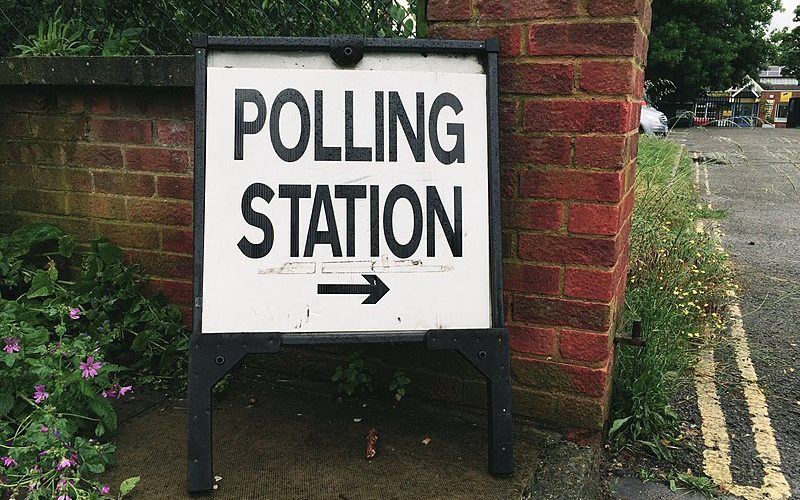Undergraduate students in the United Kingdom (UK) went to the polls in full force during the 2016 Brexit referendum. While there were initial concerns about youth turnout due to confusion over registering to vote by postal/proxy, 87 percent of eligible university students voted in the referendum, 15 percent higher than the general population’s turnout. Further, 85 percent of students—or about one million of the UK’s 1.4 million full-time undergraduates—who voted in 2016 chose Remain.
Since they will live with the effects of Brexit for decades, students tend to have strong opinions on the topic. However, the current undergraduate student population has never voted on Brexit, as they were too young in 2016. With the December general election approaching, students are facing a dilemma—while Brexit will drastically affect university education in the UK, for most, the election coincides with the end of an academic term and travelling home for the holidays. Such travelling could affect where and if students vote, impacting the vote results.
The December 12 general election comes in the wake of a further Brexit extension to January 31 after Prime Minister Boris Johnson could not get the British Parliament to ratify his deal with the European Union (EU). General elections are held every five years to elect 650 members of parliament (MPs) to the House of Commons. The last general election was in 2017, so the next general election was set for 2022.
However, as Johnson does not have enough Conservative MPs to pass laws or ratify his deal with the EU, he called for an early election. On October 29, MPs voted in favor of the Early Parliamentary General Election Bill by a margin of 438 votes to 20.
While more than one hundred opposition Labour MPs abstained, 127 Labour MPs, including leader Jeremy Corbyn, voted in favor of the early election. If it wins the upcoming election, Labour wants to renegotiate Johnson’s deal with the EU and put it to another public referendum within six months, allowing the public to choose between a “credible Leave option” and Remain. Corbyn said “this election is a once-in-a-generation chance to transform our country and take on the vested interests holding people back.” Johnson hopes that the early election will increase the number of Conservative MPs, enabling his Brexit plan to pass through Parliament.
During Parliament debates before the vote for the early election, Labour MPs voiced their concern about the date of the general election. They noted that “students could be ‘disenfranchised’ if it was held outside term time” and acknowledged the potentially significant role student voters could play. Throughout the week of December 12, many universities will be breaking up for the holidays and students will be returning to their home constituencies, potentially affecting the election outcome.
University constituencies tend to vote anti-conservative and pro-Remain for a number of reasons, including greater likelihood of students being registered to vote in their university constituency and the effect of university staff, who are generally more liberal. Polling analyses for the upcoming election say that presumably, students voting in their home constituency will benefit Conservatives, while voting in their university constituency will benefit Labour. Further, there are more than thirty constituencies that contain a local university and were decided by five thousand votes or fewer in the last election. Even more seats will be contested in districts with a majority smaller than the local undergraduate student population. For those seats in particular, whether students vote in their home or university constituency could have a real impact.
For the student vote to make a difference in any constituency, students have to “register to vote, turn out to vote, be in a marginal constituency, [and] vote as a block rather than cancel each other out.” Thus, while a number of other factors influence the effect of student votes, where students vote in December may play a role. If students are travelling on December 12, they may not vote at all.
As evidenced by the overwhelming percentage of students who voted Remain in the 2016 referendum, students have strong opinions against Brexit. After the referendum, more than three quarters of all UK students, including those ineligible to vote, felt negatively about the result. A London School of Economics survey found that 47 percent of voters aged 18–24 cried or felt like crying when they heard the referendum results. A month after the referendum, 17 percent of students who voted Leave reported that they would change their vote if they could.
In January 2019, YouthSight’s analysis of student views on Brexit showed similar feelings three years after the referendum. Overall, YouthSight found that “students would vote Remain in a second referendum and are more likely to vote for a party that opposes Brexit in a future general election.” This result may have several explanations, including negative student reaction to the Leave campaign’s ties to xenophobia, racism, and the political elite, who are seen as woefully ignorant of what citizens want.
YouthSight also found that 59 percent of students say Brexit will impact how they vote in a future general election and that Liberal Democrat and Labour supporters are most likely to say they intend to vote for an anti-Brexit party. According to David Kernohan, an editor of the Wonkhe higher education policy website, it is unclear whether students will place more importance on party loyalties or Brexit positions in the upcoming general election.
Student protests since 2016 also demonstrate dissatisfaction with the referendum result. In November 2018, more than two hundred students in Northern Ireland staged a walkout to protest the Brexit deal. Students noted that much of their frustration stems from politicians ignoring their views and opinions on Brexit and related issues. Such sentiment is reminiscent of student critiques of the 2016 Leave campaign being associated with UK political elites’ self-interest and corrupt campaigning. Protesters also said that they wanted to express themselves and their views because they “didn’t get the chance to vote on the outcome of [their] future.” In September 2019, anti-Brexit rallies and debates were scheduled at universities across the UK before students returned to school after the summer.
Brexit could skyrocket education costs for domestic UK students and EU students studying in the UK. For EU students, costs could more than double. Currently, both EU and domestic students pay £9,250 in undergraduate fees (approximately $11,880) and can take out a government loan. After Brexit, EU students will be treated like other international students, meaning that they could pay up to £20,000 in fees (approximately $25,700) without access to a government loan. In response, universities expect a 60 percent fall in international student numbers and the possible closure of certain courses (majors) at some prominent universities. Such closures would also impact domestic students.
Students who felt “very negatively” about the result of the 2016 referendum noted “concerns over visas for study, travel, and work, and reduced funding for scientific and academic programmes in the UK.” Seventy-two percent of voters aged 18–24 would miss having an EU passport and 55 percent would miss EU symbols like the EU flag, hinting at the loss of the sense of European community membership. Beside the loss of a symbolic part of their identity, the loss of an EU passport would make it harder for UK students to study abroad under programs such as the Erasmus+ scheme. Worsening graduate employment prospects due to fewer domestic jobs and the downsizing of recent graduate hiring programs due to Brexit uncertainty are also of concern.
Where and if students vote will substantially affect election outcomes. Recent polling data shows that the Labour party is the most popular among students—though not as popular as last year—but it is unclear how that support will interact with students’ Brexit opinions. Many students are prepared to vote tactically, placing Brexit positions over other concerns such as tuition fees. In the first two days after the announcement of the snap election, about 104,000 young people registered to vote, demonstrating students’ recognition that the upcoming election provides them a crucial first chance to vote on Brexit. After three years of stalled Brexit negotiations, the student vote could have immense impacts on how Brexit negotiations move forward in the new year, and whether Brexit will happen at all.



